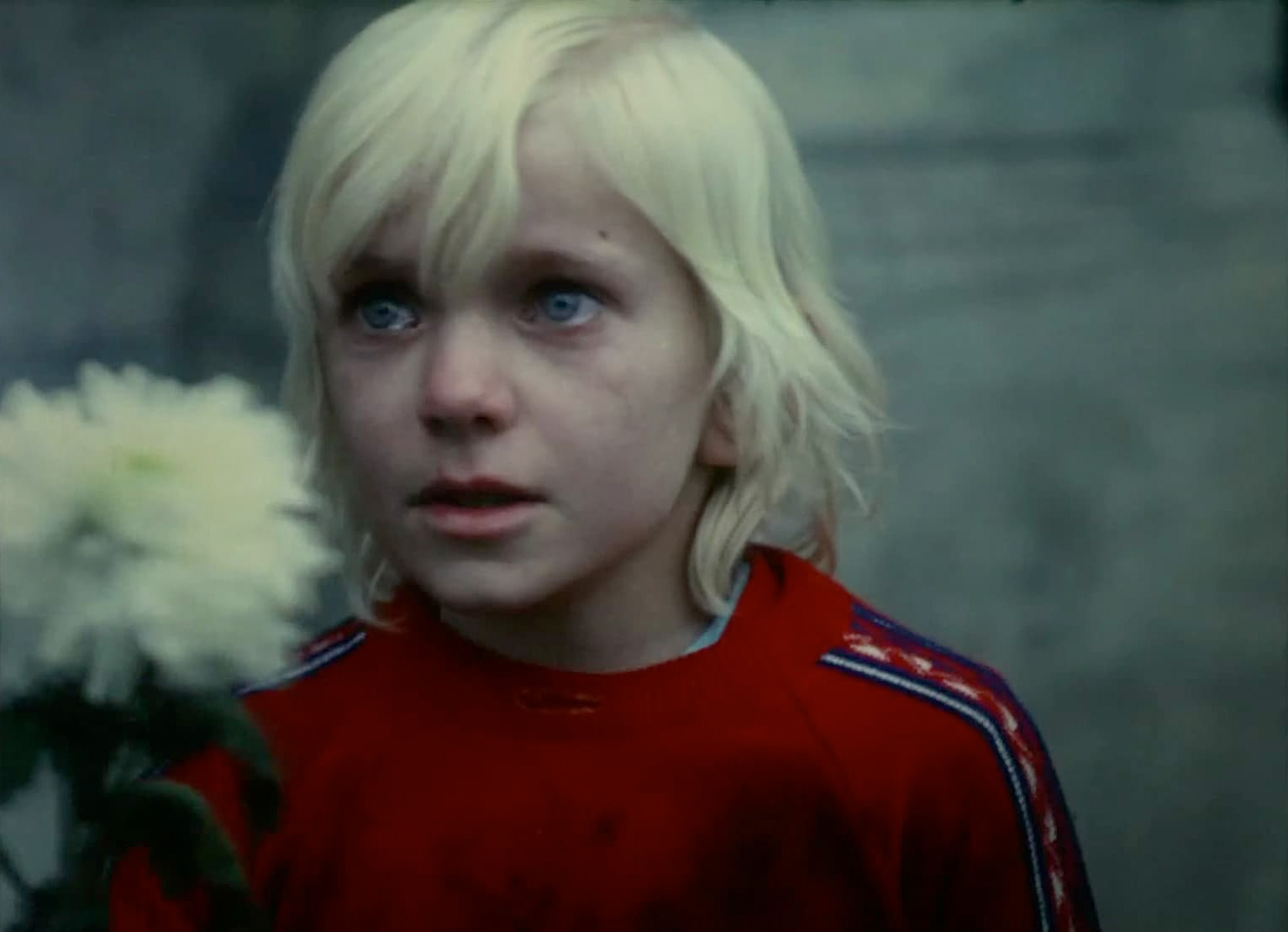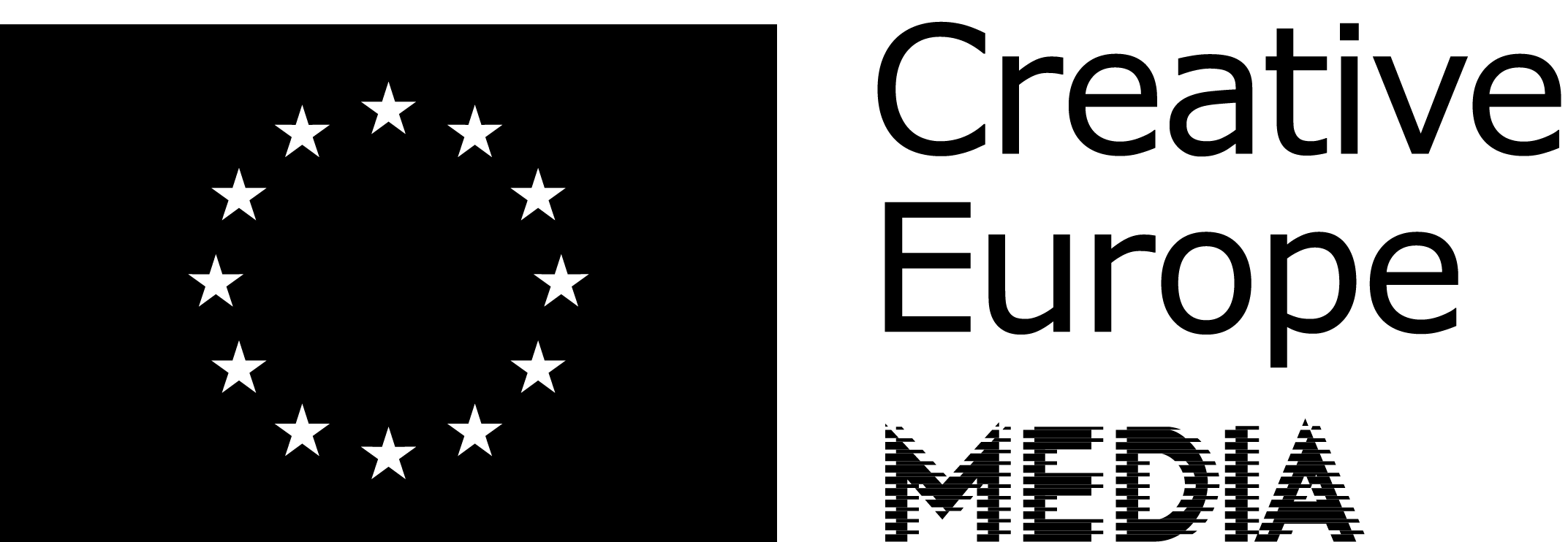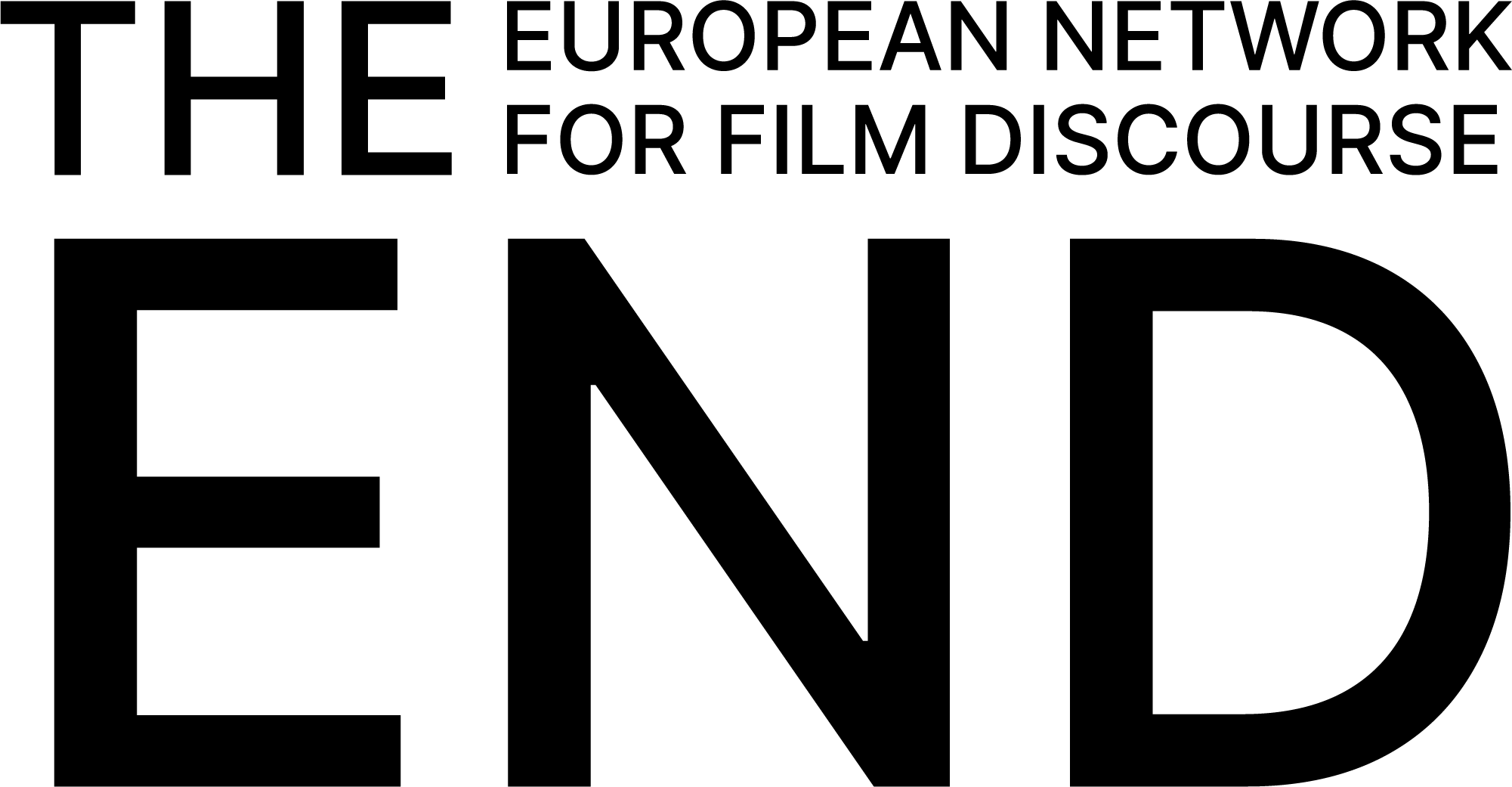FeKK Correspondence: Discomfort Made Visible
As part of our FeKK Ljubljana Short Film Festival coverage, participants of the European Workshop for Film Criticism #7 find formal playfulness not only in Lynch, but also in Slovenian works from the archive.

Dear Hava,
By the time you’ll read this, you’ll already be long gone from Ljubljana, and our festival rider will feel like nothing more than a distant memory—our lives continuing outside the bubble we shared for that one incredible week. Our time together feels as if it happened not only a fortnight ago, but almost last year. And yet not a day has gone by when I haven’t thought of you, Hava, and everyone else who joined us on this special journey.
It was both strange and wonderful to have you all in the city where I live. Strange, because Ljubljana is so small everyone here knows everyone, and it was surreal to see my worlds collide as I introduced you to my friends and shared spaces that usually belong to me alone. And yet, it was wonderful for the exact same reason. I got to share it all with you: the city, the things I love, and the people who make me who I am. Having you there made everything feel more alive and meaningful.
The 11th edition of FeKK opened on Monday, August 18, with a short made by the festival team, followed by a four-film programme curated by Mathilde Guitton-Marcon, which chronicled the ethnic cleansing in Palestine since the Nakba in 1948. Palestine was the cornerstone of this year’s edition, yet FeKK delivered a wide-ranging programme. Alongside a David Lynch retrospective, another one titled “Instant Cult” was devoted to Japanese artist Momoko Seto, who attended the festival throughout the week.
With only two exceptions, all the films that screened in the Slovenian competition section, FeKK SLO, were made by students, and most of them were produced at international academies. I’m truly sorry you couldn’t catch this programme, because the shorts were of remarkable quality and showed impressive skills already; I can’t wait to see where these filmmakers’ paths will lead.
One short in particular stood out: Tinkara Klipšteter’s Mentor. A student at AGRFT (Ljubljana’s Academy of Theatre, Radio, Film and Television), Klipšteter delves into the complex dynamics of a theatre rehearsal, and her short, which premiered last year at the Sarajevo Film Festival, follows young actress Nina (played with remarkable intensity by Suzana Krevh) as she struggles to navigate the boundaries between reality and fiction.
Though only fifteen minutes long, Mentor manages to create an atmosphere so striking that I remember holding my breath all throughout. Predictable as the film’s trajectory might feel, the emotional blow lands with incredible force. As the exchange with the professor unfolds, the camera holds relentlessly on Nina’s face, where each flicker and grimace betrays her growing discomfort until she appears almost numb to the situation she is forced into. This sustained focus makes her distress inescapably visible, denying the viewer any distance from the unfolding drama. Instead, you feel as if you are inside the rehearsal room yourself, complicit in its unsettling dynamics. I think the reason it left such a strong impression on me is because, ever since the #MeToo movement began eight years ago, we’ve become much more vocal about the issues Nina wrestles with here. And yet the topic remains something of a taboo. Mentor forces you to confront the uncomfortable fact that such situations still happen all the time—especially in places where people should feel safest. Trust is so easily exploited by those we respect and put on a pedestal; when that illusion shatters, the impact is devastating. It was incredibly uncomfortable to see such an important story on a big screen.
Speaking of discomfort, among the festival highlights this year was a programme curated in collaboration with the International Feminist and Queer Festival Rdeče zore. It featured six queer-feminist erotic and pornographic films that sought to “reestablish desire as a political and aesthetic force.” Nothing is more subversive than being different and refusing to fit into the mold imposed by society. While five of the films leaned toward the flamboyant, one left me absolutely speechless: Daniel Baker-Wells’s The Princess and the Peacock (2024). The film follows ‘freak-show’ performer Mona Guyard, a 22-year-old trans woman from a small village in France, who has found her stage within Berlin’s FLINTA (femme, lesbian, intersex, non-binary, trans, a-gender) community. From her childhood in the French countryside to her discovery of drag, we follow Mona along a journey that culminates in the Berlin premiere of her astonishing act. Her refusal to conform lies in her performance: under bright lights, before small audiences, she pierces her skin with peacock-feathered needles. Watching it, I felt as though I were in the room with her—almost as if the needles were piercing my own skin. Although I’ve never been fond of them, and usually recoil at the thought of watching someone willingly push them through their body, The Princess and the Peacock felt unexpectedly liberating. You can clearly sense how freeing it is for Mona to perform, and she looks nothing short of magnificent while doing it. Albeit the programme screened at midnight towards the end of the festival, I truly wish you’d been in the theater with me; you would have enjoyed these films as much as I did.
While I’ve attended many FeKK editions as a spectator, this was a new experience entirely. Walking around Ljubljana with a polaroid portrait as badge and speaking primarily in English, I experienced a strange mix of power and pride, yet at the same time I felt like a tourist, which is something I hadn’t registered since I moved here. And though this week felt at once like the longest and the shortest of my life, I feel incredibly fortunate to have spent every day of it with you. I know this might sound corny, but I don’t think I could have done this with anyone else. Which is strange to admit, since I only met you two months ago. I know this won’t be the last time we see each other, and I truly hope these days we spent sharing stories about films and dreaming up our next festival steps are only the beginning.
Until then,
Hana

© Mentor (Tinkara Klipšteter, 2024)
Dear Hana,
I am writing to you from my hotel room in Ljubljana, on the very last day of the 11th FeKK, Slovenia’s largest international short film festival, where we just spent a week together. I’ll be saying goodbye to this city soon, though you won’t, as this is where you live. Having a film festival in your own city must feel weird, especially in one as small as Ljubljana—yet its size is one of its biggest charms and somehow makes it the perfect setting for a short film festival. I watched the films with the same curiosity with which I navigated the foreign turf: seeing unfamiliar things, seeking meaning in them, and not always finding it.
This year, FeKK dedicated a retrospective to a filmmaker whose work I find most meaningful. His passing earlier this year left me and so many others confused, and while revisiting his work doesn’t heal the wound, it does soften it. It reminds us that his work will live on—we will keep watching his films, talk about how he saw the world, and try to see it the same way. This year, FeKK paid homage to David Lynch.
His way of approaching cinema as if it were dreams has shaped my own way of seeing films. It has taught me to let go of the need for everything to make sense—to make room for ambiguity, nonsense and absurdism. FeKK being a short film festival, the organisers focused the retro on Lynch’s shorts, including some of his earliest, works I had never seen nor expected to ever see on a big screen. Some of those were shorts he made as a student, and already demonstrated the same eagerness to toy with form that would mark his entire career.
You came with me to all of the screenings, Hana, and you saw it yourself: Lynch’s shorts were by far the edition’s most experimental. In the retrospective’s opener, Six Men Getting Sick (1967), six dysmorphic figures regurgitate one after the other under the deafening sound of a siren. A student project he made while attending the Pennsylvania Academy of the Fine Arts, the film shows Lynch’s background as a painter as well as his blend of surrealism. Six Men forsakes a traditional narrative and instead relies on repetition, confusion, abstraction, and experimentation. Some of these qualities also transpired from shorts screening in the Slovenian Competition programme, but I kept going back to Lynch’s works, as they exuded a familiarity I may have unconsciously looked for.
I felt the same watching The Cowboy and The Frenchman (1988). The film stars a number of Lynch regulars (Harry Dean Stanton, Jack Nance, and Michael Horse among them) and was shot by Frederick Elmes, who also lensed Eraserhead (1977), Blue Velvet (1986) and Wild at Heart (1990), films that defined my taste in cinema. As someone attending a festival in a city I’d never visited while surrounded by people I didn’t know, ending up in front of Lynch made me feel at home. It only makes sense that I kept returning to his films with you.
Another FeKK programme that triggered a similar familiarity was From the Archive, an ongoing series that each edition explores a different theme. Titled “Anatomy of Yearning,” the section promised films and directors I’d never heard of, and being confronted with the unknown felt electrifying.
Unfamiliar as they were, they evoked the same vitality, experimentation, and disregard for convention that I find in Lynch’s films. They also radiated a certain playfulness, none more literally than Jože Pogačnik’s First Love (1976), in which kids play around and tease each other in a classroom. Pogačnik follows two of them as they fall in love, but the film doesn’t seem to follow a clear structure or narrative arc. First Love is messy and meandering, untethered to any traditional, three-act plot. The children sit bored in the classroom, writing secret letters and whispering into each other’s ears. The short is more of a succession of vignettes than a cogent, linear drama, but that’s no indictment. First Love still managed to keep me hooked throughout, and its strength lies mostly in the form—the film’s quick editing and colourful images.
Another highlight from the programme, Matija Milčinski’s Orpheus and Eurydice (1968), conjures a similar playfulness, but to much more confounding effects. The film’s rapid succession of hazy black-and-white images leaves you no time to decipher what is going on. There’s a dreamlike, high-contrast sequence depicting something that may pass as a party, although Milčinski doesn’t quite specify what the occasion is. Things in his short seem to happen without any particular reason, and the titular characters are shown running around, falling in and out of love with each other. The most “legible” scene is the one that sticks closest to the Greek myth the film is named after; in one key juncture, Orpheus looks back at his lover, causing Eurydice to disappear.
Both First Love and Orpheus and Eurydice embraced a formal inventiveness that inspired me to see cinema differently. Among many other things, From the Archive suggested a few similarities between these Slovenian films and Lynch’s own oeuvre, a comparison I had never made before. Seeing something you’re familiar with sandwiched between something new creates a stimulating dynamic—a cinephile’s perfect balance.
Overall, FeKK was an exploration of the new, embedded in the warmth of the known—a closeness I seek at every festival I attend, but had never felt so tangible. These are the feelings I associate with Ljubljana now; forgive me, Hana, for extending my experience of FeKK to my memories of the city. I’m sure by now you know how much of a romantic I am, and a festival is never really just a festival to me. In it, I seek things that I look for in daily life, so it comes as no surprise that I often find them in the most unfamiliar places.
All my best,
Hava





